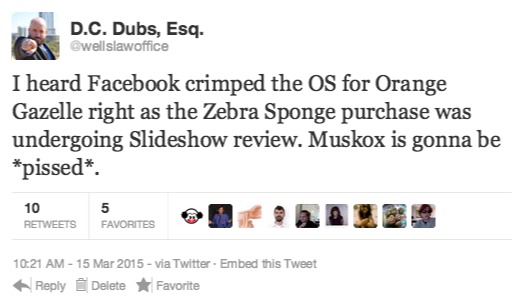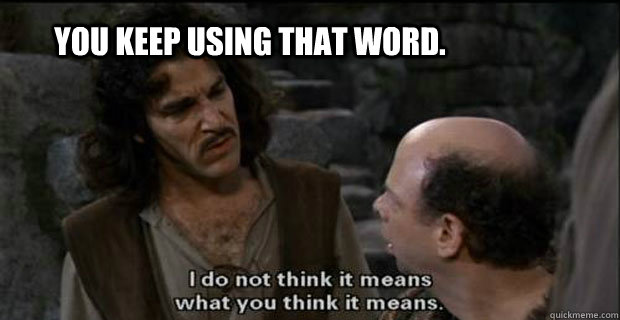See Part 1 here.
If South by Southwest Interactive (or SXSWi, for those in the know) is good for anything, it’s breaking news that makes no freaking sense whatsoever if you don’t already know the names of the companies and apps at issue.
I was thinking about sending gibberish tweets involving SXSW-style jargon using the #SXSWi hashtag, just for fun and because I’m kind of a snarky ass. My Twitter handle is @wellslawoffice, though, so it doesn’t look all that credible coming from me.
I could start a @BreakingInteractiveNews account, I suppose….
Most of my ideas are pretty mean, could possibly lead to at least some civil suits, and really just need to remain ideas in my twisted brain…… Not that I’ve ever let that stop me before.
Location-based apps seem to be all the rage right now. Hmmmmmm……. Continue reading



